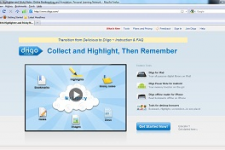Formal Learning and Informal Learning

Learning can occur outside of school and even unrelated to school work. Quite often it is this learning type that tends to remain etched in the memory of the child for a long time. It is therefore important to have a perfect blend of formal and informal learning.
Jay Cross, the originator of the […]
Second Life in Education: Using a Virtual World as a Teaching Tool

Second Life is a very large virtual world made up of people of many different beliefs, compositions, forms and expressions.
The Second Life is a shared simulation. It provides a unique and flexible environment for educators interested in distance learning, computer supported cooperative work, simulation, new media studies, and corporate training.
The advantage of using […]
Benefits of Formative Assessment in the Classroom

According to Lang, et al (2008), the formative assessment process came from educators working on ways to accelerate student achievement and help predict how students will perform on standards-based statewide tests.
The benefits of formative assessment is obvious in the classroom. The usage of formative assessments in class as a way to guide instruction […]
Using Video Games for Learning

Games by their very nature assess, measure, and evaluate. Interestingly, this is also part of a teacher’s job. Therefore the concept of video games for learning can be developed in the following ways:
Studying games,
As a teamwork project,
Delivering content with games, and
Using games to leverage other skills.
Games can be used as new fiction and […]
Definition of Formative Assessment

For years, the main reason students were given tests was to understand what they have learned and to grade them. However in the 21st Century, tests took on a new role – to determine what a student has mastered and to reshape instruction. Less emphasis was laid on determining a student’s grade.
The use […]
Creating Positive Classroom Rules

In order to create an environment of learning, it is important to enforce positive classroom rules. These rules would provide students with positive behavior models to follow. The positive classroom rules need to be designed with certain principles in mind.
Be limited in number (eg. 4-5) so that students can remember them with ease. […]
Why Use Skype in the Classroom

Skype is a free tool that can be downloaded onto any computer. It allows the user to make free video or voice calls over the Internet. Any two computer users with skype accounts and webcams can see and hear each other.
The possibilities of using Skype in the classroom are practically endless! A teacher […]
Understanding Learning Styles

Our learning types or styles are our “preferences” in the way we think or do things. Different people have different styles and these styles affect how we work and what we like to do. Every student is different and the way they respond to a particular style of teaching is different. Understanding learning […]
Understanding Gifted Education

A lot of teachers are unsure on dealing with gifted learners in their classroom. The natural tendency is to assign more work instead of dealing with the child differently, in order to develop a different learning outcome.
“Gifted education” helps the gifted learner squeeze the most out of his learning process. But how exactly […]




